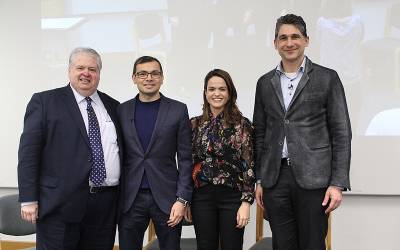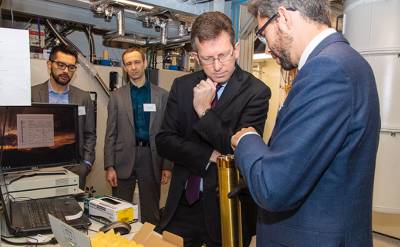Since its foundation, UCL has been a natural home for innovative thinkers from all backgrounds – those who bring fresh perspectives and new approaches to tackling complex global problems.
UCL2034 seeks to support those thinkers now and for the future, creating a supportive home and enabling environment for our academics to excel.
Some of our achievements this year have been high-profile, attracting media headlines, such as the Duchess of Cambridge’s recent visit to developmental neuroscientists in UCL Psychology and Language Sciences. Others have been less prominent, but no less significant in their impact. Either way, they reinforce UCL’s reputation and pave the way for new opportunities.
Our academic achievements in 2018 have ensured that UCL retains its place in the global top 10: we truly are a world-leading university.
UCL President & Provost, Professor Michael Arthur
Find out more
- Objectives of this principal theme
- Strategy for this principal theme, including implementation plans
- More Academic leadership case studies
Next principal theme |
 Close
Close




